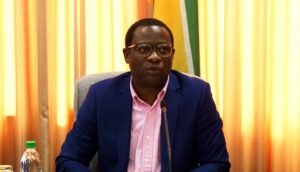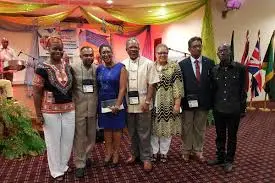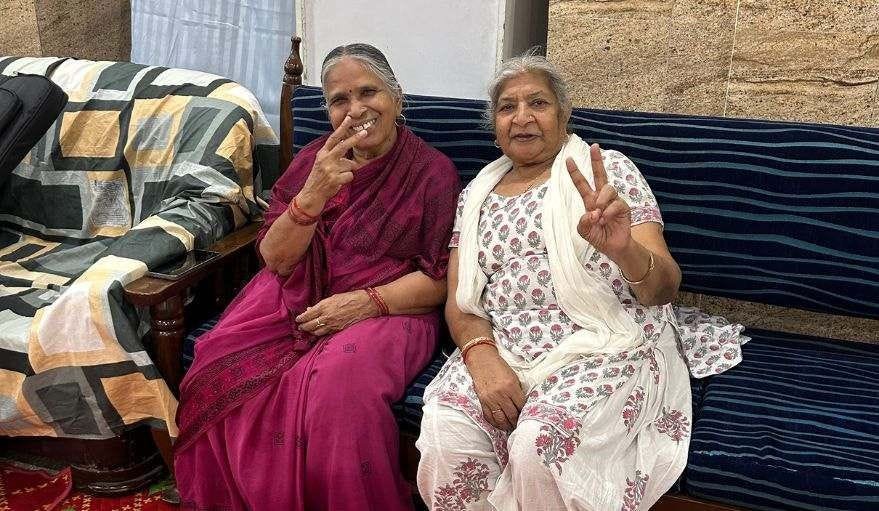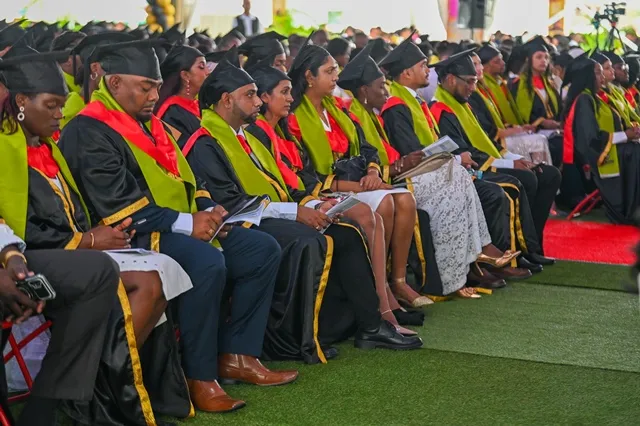The Changing Tide of Remigration
When 409 Guyanese citizens returned home in 2024 – the highest in years – it signaled more than just individual homecomings. It marked a turning of the tide. For decades, Guyana’s diaspora was synonymous with remittances: hard-earned dollars flowing back to sustain families. But now a new narrative is emerging. Those same overseas Guyanese are packing up and coming back, lured not only by oil-fueled growth but by targeted policies that make returning easier and investing attractive. According to Foreign Minister Hugh Todd, the government’s streamlined re-migration process processes applications within a week – one-third the time it used to take under the previous administration. This efficiency, combined with tax exemptions for returning citizens, signals that Guyana is rolling out the red carpet for its diaspora.
“Don’t just send money – come back and invest,” Minister Todd urged at a Toronto gathering. His words encapsulate a sea change in how Guyana views its far-flung sons and daughters. The diaspora is no longer seen merely as a source of remittances, but as partners in nation-building. The administration’s message is clear: your skills and capital are needed at home. And intriguingly, many are responding. Since August 2020, roughly 2,000 re-migrant applications have been approved, reflecting growing trust in the country’s trajectory.

From Brain Drain to Brain Gain
Older Guyanese still recall the “brain drain” era when educated youths fled en masse for lack of opportunities. Guyana infamously had an 89% emigration rate for citizens with tertiary education, one of the world’s highest. Nurses and engineers trained in Georgetown would end up in New York or London. Reversing that trend was never going to be simple. Yet today, if you speak to recent returnees, there’s a common refrain: things are finally happening back home.
This renewed confidence owes much to deliberate strategies. The government revived the Diaspora Affairs Unit and held over a dozen engagements abroad in 2024 alone. Virtual investment conferences, job fairs in New York and Port of Spain, outreach missions – all aimed at converting nostalgia into action. The result? A surge in inquiries on starting businesses in Guyana and even 409 re-migrants in a single year returning with their families.
One such returnee is Dr. Maya Prasad, a 40-something IT professional who spent 20 years in Canada. “I always dreamed of giving back to Guyana, but there was no ecosystem for someone like me,” she says. Last year, after reading of tech parks and e-governance initiatives in Guyana’s pipeline, Dr. Prasad decided to take the leap. She’s now setting up a software development firm in Georgetown. “It’s surreal – I left a country starved of opportunities and returned to one bursting with potential,” she muses, noting the dramatic change.
New Lures: Silica City and Beyond
Perhaps the boldest pitch to the diaspora is Silica City, a planned ultra-modern sustainable city. In April 2025, President Irfaan Ali announced that the second phase of Silica City’s development will be exclusively opened to diaspora investors. This isn’t mere symbolism. The project – envisioned as a high-tech urban oasis with smart homes, solar energy, and wellness centers – offers tangible entry points for overseas Guyanese. Imagine a nurse from Queens investing in a health clinic back in Guyana’s new city, or a Guyanese-British engineer helping build green infrastructure. That’s exactly the kind of involvement the government seeks.
Silica City’s first phase is already underway, with young professional homes rising from cleared lands along the Soesdyke-Linden highway. Now, the next phase invites diaspora co-development. The message is compelling: come build a piece of Guyana’s future, literally. And it extends beyond Silica City. Diaspora investors are being courted for projects in agriculture, tourism, and manufacturing as well, sectors long overshadowed by oil. The goal is diversification with diaspora capital and expertise at the helm.

From Remittances to Repatriation of Skills
The government’s posture marks a pivot from seeing the diaspora merely as senders of cash to recognizing them as repositories of skill and social capital. “For too long remittances were the pinnacle of diaspora relations,” Todd noted, “It’s now opportune to prioritize diaspora investment as key to long-term development”. This aligns with the ruling party’s manifesto pledge to reverse adverse changes to the re-migrant scheme and simplify return. Indeed, beyond the glossy investment forums, bureaucratic fixes have been crucial. The once-onerous paperwork to regain residency and ship home belongings has been trimmed. Tax exemptions on vehicles and household items for returnees provide immediate relief.
These measures, while technical, address what used to be nightmare hurdles. “It took me 5 working days to get my re-migrant status approved – I was stunned,” recalls Andrew Persaud, who moved back from the UK in 2023. Persaud took advantage of the duty-free concessions to import construction equipment and has since launched a housing development venture outside Berbice. He’s one of the many who, enabled by smoother processes, are bringing not just money but know-how into local business.
Investing in More Than Oil
Crucially, diaspora engagement isn’t funneled solely into oil and gas. Todd emphasized that diaspora investors have roles in traditional mainstay sectors – agriculture, education, health – not just the new oil industry. This broad-based approach is deliberate. Guyana’s leaders know that oil wealth can be transient, and true development means leveraging the diaspora to strengthen economic pillars that last. We’re seeing, for instance, overseas Guyanese financing agro-processing facilities, introducing new technologies to rice farming, and spearheading healthcare initiatives in their home villages.
Even small-scale enterprises count. Take Leila and Rohan Singh, a Guyanese-American couple who retired back to Essequibo Coast. With a modest investment, they opened a farm-to-table restaurant featuring organic produce. It’s a first of its kind in that rural region, and it’s run with an ethos they picked up in California’s farmers’ markets. The Singhs employ local youth and teach sustainable farming techniques – a microcosm of how returnees are enriching local communities. “We never thought our American experience would be valuable here, but it really is,” Leila smiles, noting how receptive locals have been.
Government officials have caught on to these stories. Initiatives like the “Guyanese Diaspora Online Marketplace” are being developed to help foreign-based Guyanese invest in small local projects remotely. Meanwhile, the Diaspora and Remigration Unit provides a one-stop helpdesk for queries ranging from real estate to starting a business. It’s a concierge service of sorts, reflecting the administration’s understanding that wooing back talent is a competitive endeavor – one where Guyana is now finally punching above its weight.
Walking a Tightrope: Pride vs. “Brain Circulation”
Not everything is rosy, of course. Integrating returnees has its tensions. Some locals grumble about “come-from-boss” attitudes when expats swoop in with big plans. And some returnees struggle with local bureaucracy or slower-paced business culture despite improvements. The government must balance tapping diaspora talent with nurturing local professionals – a classic developing-country tightrope. There’s also the reality that not all who want to return can; many have built lives abroad, and uprooting families is complex.
However, a middle path has emerged: diaspora contribution without permanent relocation. Through programs like the Virtual Diaspora Conference in 2021 and webinars on investment in 2023, overseas experts are lending ideas and mentorship from afar. Call it brain circulation instead of brain drain. A Guyanese hydrologist in Houston might consult on a flood control project in Georgetown via Zoom. Or an artist in Toronto might collaborate with a local gallery for a cross-border exhibition. Technology and creative engagement models mean one can contribute to Guyana’s renaissance without necessarily catching the next flight home.
Subtly Shifting Politics
A subtext to this narrative is political. The current People’s Progressive Party/Civic (PPP/C) government has staked a lot on diaspora inclusion – and not just for economics. The diaspora often includes influential voices in Western capitals and multilateral organizations. Their goodwill can translate into soft power for Guyana. By and large, the PPP/C has earned credit among overseas Guyanese for restoring constitutional rule after the tumultuous 2020 elections and for the economic boom since. This goodwill matters.
Many in the diaspora community, even if not overtly political, notice that under the PPP-led administration, Guyana’s international image has improved. Stability and progress are good for business – and for convincing someone to move back. Diaspora Guyanese are also seeing tangible improvements on the ground: better roads, more reliable electricity coming (via the gas-to-energy project), new hotels and shopping plazas. These developments make the prospect of resettling less daunting. Nobody wants to go back to blackouts and stagnation, as one New York-based Guyanese quipped.
That said, the government is cautious to avoid seeming propagandistic in its diaspora messaging. The emphasis is on partnership. Returnees are celebrated, not as heroes, but as fellow stakeholders in the nation’s future. For example, at a recent diaspora gala in London, rather than speeches extolling government achievements, the focus was on diaspora success stories and how they can connect with opportunities in Guyana. This subtle alignment – highlighting progress without chest-thumping – helps maintain credibility.
Human Stories Driving a Revolution
What’s unfolding is essentially a human capital revolution for Guyana. Consider the Guyanese doctor in New Jersey who volunteers at a hinterland medical outreach each summer, the Silicon Valley coder who mentors a Georgetown tech startup online, the second-generation youth in Toronto now excited to visit her parents’ homeland because she’s heard of the new eco-resorts and business buzz. These are anecdotes, but taken together they weave a narrative of a diaspora reconnecting at multiple levels.
One especially poignant story is that of Jason Narine, a civil engineer who left Guyana 15 years ago. In 2022, Jason watched via livestream as devastating floods hit his ancestral village on the Pomeroon River. Feeling helpless abroad, he reached out to local authorities and offered pro bono services. That led to a remote role in redesigning drainage systems. The experience moved him deeply. Last year, Jason moved back with his wife and their teenage twins. Today, he’s heading a coastal resilience project, applying expertise he honed building levees in Louisiana. “Coming home was the best decision,” he says. “I’m finally at peace knowing my work is safeguarding my own people.”
These individual decisions, multiplied many times over, are slowly but surely transforming Guyana. The diaspora is investing not only money, but its collective heart and intellect. The partnership is reciprocal: Guyana is offering the diaspora a real stake in its rising prosperity, and the diaspora is offering Guyana global perspectives and skills honed abroad. As one government ad campaign put it: “Our greatest import is you.”
Conclusion: A Future Forged Together
Guyana’s transformation is often measured in oil barrels and GDP growth, but perhaps the more profound metric is the flow of its people. For the first time in recent memory, that flow is not one-way out. Engineers, nurses, teachers, entrepreneurs – they are trickling back or engaging from afar, drawn by a homeland that is finally stepping out of the shadows. There’s a palpable excitement that Guyana’s long-awaited moment has arrived, and everyone – including the diaspora – is invited to the table.
In a sense, Guyana’s diaspora story is coming full circle. The journeys that began in search of better lives elsewhere are finding their way home, enriched by experience and optimism. Challenges remain in ensuring inclusivity and managing expectations, but the trajectory is unmistakable. The narrative has shifted from lamenting brain drain to harnessing a brain gain. For a small nation of under 800,000 at home and perhaps an equal number abroad, this reunion of resources and resolve could be game-changing.
As Guyana charts this new course, its diaspora is no longer a distant footnote but a central chapter. The world will be watching how this partnership unfolds – a model perhaps for other countries seeking to turn their “lost” citizens into the prodigal force driving national renewal. Guyana, it seems, is determined to show that you can go home again – and build something extraordinary when you do.




